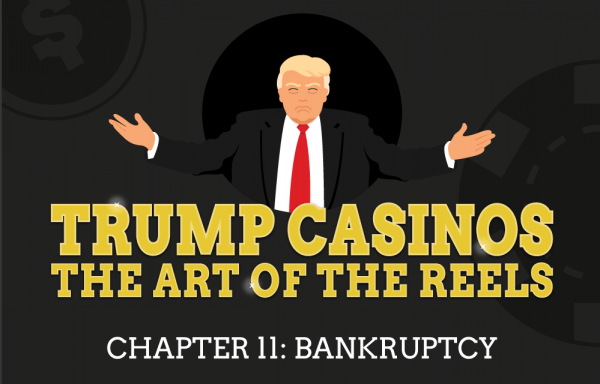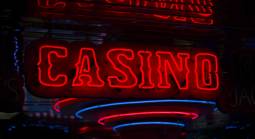How Trump bankrupted his Atlantic City casinos
It would be fair to say that the first six month’s of Donald Trump's presidency have been eventful.
From allegations of Russian intervention in the election to holding hands with the British prime minister, the self-proclaimed billionaire businessman has struggled to maintain unity within Congress and the American electorate.
But, even the biggest failures of Trump’s presidency shrink to insignificance alongside the disasters of his Atlantic City casino empire.
While some argue that the emergence of new online competition and the mismanagement of local government contributed to its ultimate demise, (alternative) facts suggest otherwise. Here’s the story of how Trump went bust on the boardwalk.
The rise to casino king: 1984 - 1990
Donald Trump took over control of the Trump Organisation from his father. The company was founded in 1923 as Elizabeth Trump & Son and is still active today.
But, it wasn’t until the early 1980s that the organization entered the fledging New Jersey casino market following the 1976 legalization of gambling in the state.
Trump’s first casino resort opened in 1984, in conjunction with Harrah’s, on the boardwalk of Atlantic City. The Trump Plaza cost $210 million to build and incorporated 906 rooms and a 90,000 square foot casino floor.
With his appetite whetted, Trump spent the rest of the decade acquiring other casino and hotel resorts in the region.
Just one year after the Plaza opened, Trump bought the Atlantic City Hilton Hotel and rebranded it as Trump’s Castle. Three years later, he also bought what was, at the time, the largest and most extravagant casino project on the planet, the Taj Mahal.
The Taj cost an unprecedented $1.1 billion to build, had over twice as many rooms as the Plaza (2,010) and over 80% more gaming space. Unfortunately, this was all financed with a series of high-risk junk bonds and the Taj filed for bankruptcy in 1991, just one year after it opened. The resort was burdened by almost $3 billion of debt - almost three times more than what cost to build. It is not exaggerating to suggest that the opening of the Taj in 1990 was the best it ever got for Trump’s casino business in its entire 30-year existence.
A rollercoater of resurgence and collapse: 1991 - 2000
Not content with just one bankruptcy at the beginning of the 90s, Trump followed up with two more in 1992. A vintage year.
Trump was forced to give up a 50% stake in his harbour-side Castle casino after it went bankrupt with $338 of debt, while also declaring another bankruptcy for the Plaza. Publicly traded Trump Hotels & Casino Resorts (THCR) was established in 1995 to take control of his sunken casino portfolio.
THCR then bought a floating casino in Indiana later that year (ingeniously named, Trump Casino), opened a new casino adjacent to the Plaza, named Trump World’s Fair in 1996, and renamed the Castle to Trump Marina in 1997. At the turn of the millennium, Trump also began managing Spotlight 29 Casino in Coachella (rebranded as Trump 29 Casino) as part of an agreement with its Indian operators.
Trump’s final bet: 2001 - 2014
After a promising period of relative stability, things came crashing down again in 2004 as THCR filed for bankruptcy, Trump reduced his share to just 27% and the business was rebranded as Trump Entertainment Resorts (TER).
A year later in 2005, Trump’s involvement with Spotlight 29 Casino ended and he sold his floating casino in Indiana for $253 million to Majestic Star LLC. TER again applied for bankruptcy in 2009, causing Donald Trump to resign as chairman but retain a 10% stake in the company. Trump Marina was sold to Landry’s in 2011 for $38 million and TER went bankrupt for the third time in 2014.
Trump then sued to have his name removed from the now closed Plaza and struggling Taj Mahal. In recent years, TER was acquired by Icahn Enterprises (2016) who went on to close the Taj for good before selling it to Hard Rock International in 2017. As it stands, Donald Trump now owns no casinos anywhere in the world, but does hold the honor of being 45th President of the United States.















